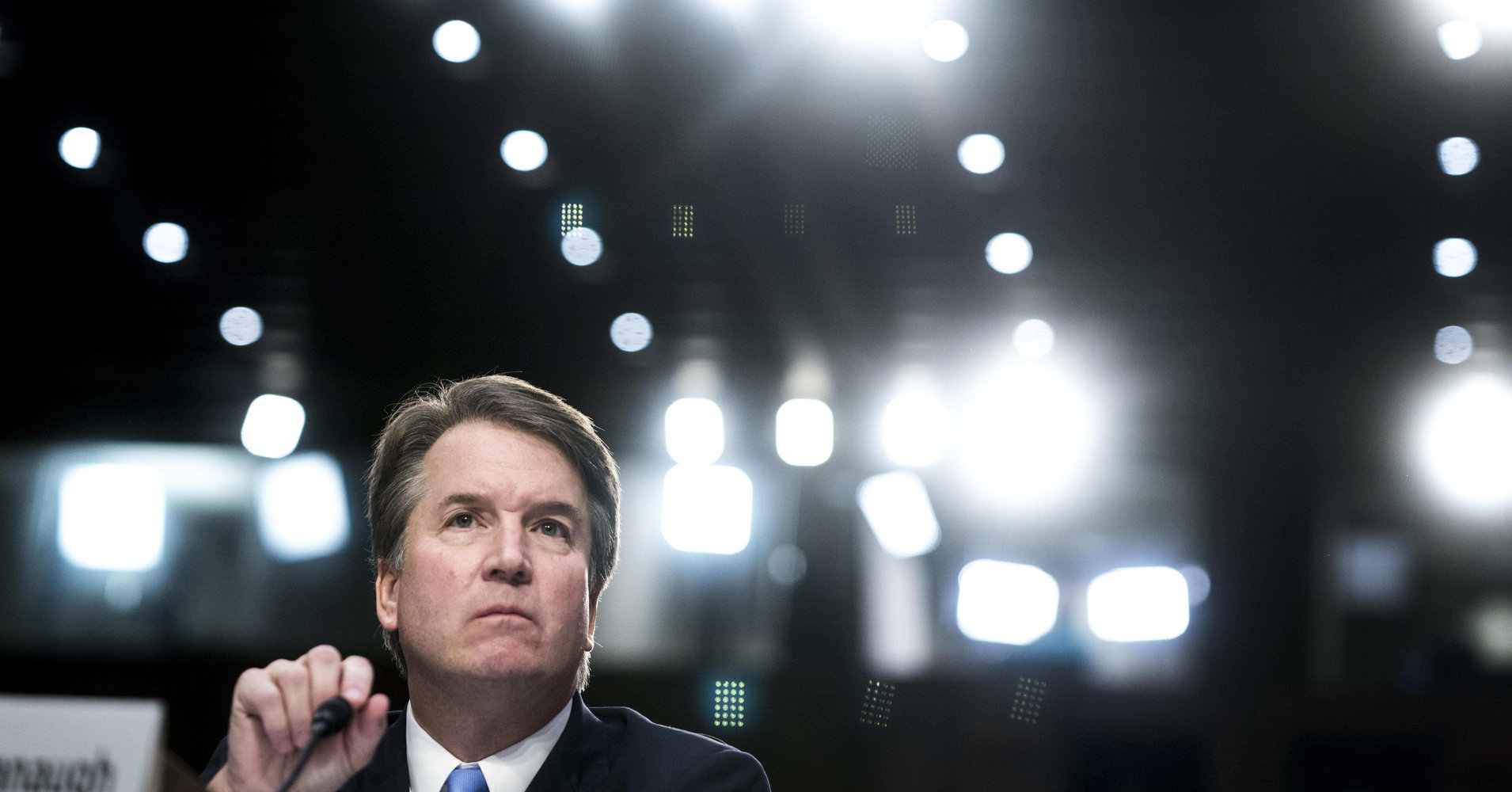[ad_1]

The other day, a source described as a “lawyer close to the White House” assured Politico that Brett Kavanaugh’s Supreme Court nomination would not be withdrawn. Dr. Christine Blasey Ford’s allegations that Kavanaugh had attempted to rape her would have no effect, the lawyer insisted. If anything, he went on, it was time for the men of the world to draw a line: “If somebody can be brought down by accusations like this, then you, me, every man certainly should be worried. We can all be accused of something.”
Give the lawyer credit for this much: At least he did us the favor of saying the thing other men tend to dance around. This was more than a matter of protecting President Donald Trump’s nominee or even Trump himself, who after all has admitted to grabbing women by their pussies without their consent. This was tribal. This was about tribal self-preservation.
We’ve seen this tendency of men ― particularly straight, white, powerful men ― to close ranks in many of the high-profile cases of men facing allegations of sexual assault, harassment or misconduct in the wake of the Me Too movement.
Woody Allen worried about a “witch hunt” in the wake of reporting on Harvey Weinstein. Comedy Cellar club owner Noam Dworman said that “there can’t be a permanent life sentence on someone who does something wrong,” with regards to Louis C.K. Even Michael Ian Black opined, “People have to be allowed to serve their time and move on with their lives.” Harper’s Magazine publisher John R. MacArthur told CBC Radio, with regards to the decision to run a 7,000-word essay written by the disgraced former NPR host John Hockenberry, that “the Me Too movement has had a tendency to lump together everybody … and the response in many cases has been disproportionate,” later adding that “we’re running into a buzzsaw of illiberalism.”
As if nothing is worse than men being worried. As if every woman I know, and likely you know, isn’t worried about assault and harassment on a near daily basis. As if we’ve forgotten who was actually hunting witches in Andover and why. As if women were permitted the luxury of “moving on with their lives” instead of having their thoughts and behaviors and decisions infiltrated by the threat of sexual abuse. As if most women don’t possess an internal baseline of rage simply from existing — a “permanent life sentence,” you might call it. As if sexual abuse weren’t a “buzzsaw of illiberalism,” too.
What we are seeing now is powerful men who simply find empathy for accusers to be inconvenient to their personal desires and to their place in the social order, leaving a nation to grapple with a president who has admitted to grabbing unsuspecting women’s pussies and a Supreme Court nominee who wants to regulate them.
I was recently listening to an old episode of the “Dear Sugars” podcast, an advice podcast hosted by writers Cheryl Strayed and Steve Almond. On this particularly prescient episode, which originally aired in July 2016, a woman writes in with a harrowing conundrum. She describes herself as a survivor of sexual abuse, and says that her long-term male partner has recently disclosed that in high school he got blackout drunk and raped an unconscious girl at a party. She both hates him and loves him, doesn’t know how to square the giving partner she knows with the young man who violated a young woman and faced no tangible consequences for it.
The episode is wrenching, but what struck me most is a line in the letter where the woman says that her partner would take issue with her when she made comments suggesting that rapists should be punished. “He gets frustrated that everyone gets so dismissive of the argument that young guys who fuck up and make a mistake shouldn’t be punished in ways that ruin their whole lives,” the woman wrote. Even a man who has lived with and loved a survivor of sexual assault for years ― who has, by her account, helped her find a therapist and taken care of her through her mental health struggles ― could not help but prioritize his own desire for easy absolution over the reality that young women’s (and men’s!) lives are so often “ruined” by the youthful “mistakes” of others.
What comes across in all of these cases is an overwhelming fear on the part of men that either they have done something in the past they didn’t realize was bad that they will now be made to account for, or that something they know was bad will come back to haunt them. I have empathy for men ― I really do! I can imagine how scary this moment must feel for many of them, having spent so much of their lives with the certainty that their behavior was beyond consequence. But instead of grappling with these hard questions, they shut down, insisting that women must not be allowed to run amok with their claims, as if women who share their pain with the public do so for pleasure, delighting in the felling of men’s careers. As if those women don’t any face consequences of their own ― not just of the initial trauma, but of the backlash that inevitably follows these disclosures.
Because sexual assault is so ubiquitous, because our sexual scripts are so fundamentally flawed, because rape culture is so all-encompassing, many men see themselves more in the perpetrators of these offenses than in the alleged victims. As Talia Lavin put it in a column for HuffPost, “Those who rush to put themselves in Kavanaugh’s shoes may have never attempted the alternative: imagining oneself pinned to a bed, a hand over your mouth, unable to defend your own body.”
To move forward as a culture requires both empathy and discomfort. These reckonings implicate us all, force us to re-evaluate our histories and recalibrate our futures accordingly. What we are seeing now is powerful men who simply find empathy for accusers to be inconvenient to their personal desires and to their place in the social order, leaving a nation to grapple with a president who has admitted to grabbing unsuspecting women’s pussies and a Supreme Court nominee who wants to regulate them.
[ad_2]
Source link

